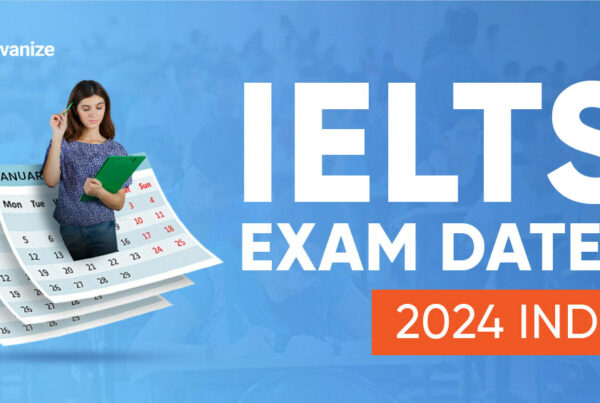
A Complete Guide To
IELTS Writing Tips
Chapter 1
IELTS Writing Section Overview
The IELTS Writing Section tests your ability to respond to the given task with coherence, grammatical sense and accuracy, and the flow of your language. Your ability to present your thoughts, responses and ability to understand the task is crucial in this section. There is a time limit of 60 minutes, and 2 tasks to be completed within the same. This is true for both the Academic Test and the General Test.
IELTS Academic Test - Writing Section
The first task within the Academic Test lasts for 20 minutes. You will be given some data in the form of graphs, charts, tables or some diagrams. Based on the task, you will need to understand, summarize, deduce or describe the data given to you, in your own words (at least 150 words). Your writing style should be academic and your tone should be semi-formal or neutral. You need to capture the essence of the data and its main points.
For the second task, you will be presented with an argument / point of view / issue and be asked to write an essay about it, as a response (at least 250 words). Your writing style needs to be academic and your tone, like before, needs to be formal. Your response needs to be relevant and well thought-out. Read the topic carefully. Stick to 40 minutes for this task and provide relevant examples.
Notes –
- Bullet points are not allowed. Your answers must be written in full paragraphs.
- The second task contributes twice as much to the final Writing band score as task 1.
- We hope you see the irony here about bullet points. Seriously. : P
IELTS General Test – Writing Section
For the General Training Test, the first task involves responding to a given situation in at least 150 words and under 20 minutes. The situations may involve presenting or explaining the provided scenario, requesting information, express wants and needs or even provide information. The task will tell you what you need to ask for. The tone depends on the given context, so read carefully. Bullet points and plagiarism as strict no-nos.
The second task of the General Test is similar to the second task of the Academic Test. Essentially, it involves being presented with an argument, opinion or point of view and writing a relevant response to it, in the form of an essay. It lasts for 40 minutes and the minimum words required are about 250. Do NOT go off-topic!
Chapter 2
IELTS Writing Tips and Tricks
There are tons of tips out there for the IELTS Writing Section. A lot of what we are about to discuss, will be caped by logic, common sense and practice, but underneath, there is a body of knowledge and experience. So, let’s see what tips we have to offer you for the IELTS Writing Section!
Do you know how to write an essay?
It is better to ask this question write off the bat, because that is what this entire section of the IELTS is devoted to – writing! Are you familiar with the composition of an essay and are able to articulate your thoughts in a concise manner? Here’s a simple guide –
- Introduction – Introduce the topic / prompt appropriately. Lead on to the body paragraphs clearly and do not waste time polishing your introduction.
- Body Paragraphs 1 and 2 – These paragraphs will help you break your ideas down in a clear manner. You need to elaborate upon your ideas with relevant, sound examples. It is generally good to stick to 1 idea per paragraph. Remember, you need to transition from 1 paragraph to the other in a logical, seamless manner. Make sure they are connected properly and sensibly.
- Conclusion – A solid conclusion can take you a long way. It is particularly vital for Task 2. Round up your points and back whatever you have expressed in the body paragraphs. Go back to the prompt and solidify your answer.
Read the questions carefully and understand them
This should be the first step of your task. Read the question carefully and identify the type to which it belongs. Is it asking for a solution or an opinion? Are you supposed to criticize the argument or back it up? Identifying this is half the job, and it will take you a long way in your essay writing.
Brainstorm
You’ve just read the prompt and your mind is (hopefully) buzzing with thoughts. Work with them and map out your essay. Take around 5 minutes to jot down the main points and examples that pop into your head. These ideas and thoughts will be crucial for your draft. Mapping the essay out provides for clarity when it comes to writing it. This is one of the most important tips out there.
Write the first draft of your essay based on Tip 1
5 W’s and 1 H
This is a good tip to follow while looking for ideas based on your prompt. What, who, when, where, why, and how. These will clear up to fog surrounding the prompt and allow you to write freely.
Personalize it:
It helps to add relevant examples and your own opinions (if the prompt allows it) while writing the essay. The essay is going to be read by an examiner and that can be a little daunting. So, imagine you are writing the essay to a friend, and phrase your thoughts and ideas freely. The main point here, is to grasp what the prompt requires from you and structure your easy accordingly.
Stick to formal language
Tip 6 does not mean you personalize your essay in such a way that it becomes colloquial and informal. Do not use text shortcuts and social media slang on your essay. Write full, grammatically sound sentence in a formal tone, avoid 1st and 2nd pronouns like I, you, your etc. This can be used sparsely in the conclusion alone. The tone of the entire essay needs to be academic and formal / semi-formal.
Avoid repetition and embrace punctuation
Lexical resource is one of the 4 criteria that the IELTS uses to grade your essay, the other 3 being – task achievement, cohesion and grammatical range & accuracy. Lexical resource deals with correct use of punctuation, spelling accuracy, word formation, and range of vocabulary. Add some flair to your language and avoid dull, repetitive usage of words, for the latter causes the examiner to think that you have a poor knowledge of the language.
Build your General Knowledge and peruse IELTS Essay topics:
Here is a useful link that contains a lot of IELTS Essay topics. These will ensure that you have a repository of information to draw from when you are actually writing the exam. It is always a good idea to read newspapers, magazines and books. They will build your General Knowledge and your vocabulary as well. You will also a get a sense of grammatical intuition, where you just know when a sentence feels off.
Complete all your tasks
Seriously, there is no elaboration required for this one. Completing all your tasks is crucial and removes chances of penalization on these grounds.
Practice Tests
This one is a no-brainer. You need to practice and write essay beforehand, in order to function smoothly during the actual IELTS. Here’s a link for one of the best IELTS Practice Tests out there. It’s free! Practice will ensure that you assess your strengths and weaknesses, and allow you to hone your writing abilities effectively.
More does not mean better
Do not digress or ramble on. Stick to the main points, be focused and stay relevant in your writing
The prompt is everything
Stick to the confines of the prompt. Whatever it says is sacrosanct. It will serve as a guiding hand for your essay if you practice and learn to use it well.
Task 2 vs Task 1
Obviously, Task 2 is more important in terms of your Final Writing Band Score. If you want to get Band 9 in IELTS Writing, you need to practice for both tasks. One is for 20 minutes and of a different type, while the other type is for 40 minutes. Go back and read our section on the 2 tasks and why the distinction should matter in your preparation.
Chapter 3
IELTS Writing Time Management
We’ve covered a lot of useful IELTS Writing Tips up above. Let’s look at time management when it comes to this section.
|
To do |
Task 1 - 20 minutes |
Task 2 - 40 minutes |
|
Read the question carefully |
2 min |
2 min |
|
Map out your ideas |
3 min |
3 - 5 minutes |
|
First draft |
10 minutes |
23 minutes |
|
Organisation and logical flow |
2 min |
5 minutes |
|
Proofread and finalise |
3 min |
5 minutes |
This structure should serve as a template for your essay writing. Ensure that you stick to it during practice. You can make a few tweaks as per your convenience, but remember, it is always better to finish early and go through your essay in the remaining time.
Inconsistencies can be corrected; extra points can be added and you can read your essay as a reader instead of a writer in order to gain some clarity.
Hope this blog helped you! Written by Saahil R Bhatt.
Guided by Pavitra Srinivasan and the Galvanize In-house Experts











Thanks for sharing, this post is really helpful ^^
Thanks for sharing this information. I really appreciate work work.
Thanks for sharing this post related to IELTS preparation. It helps those students who want to go for study abroad.